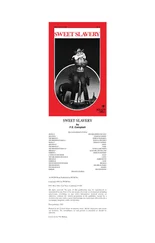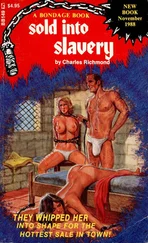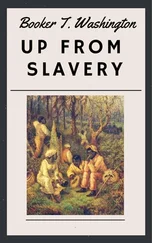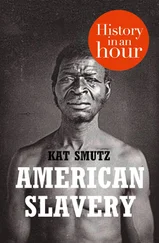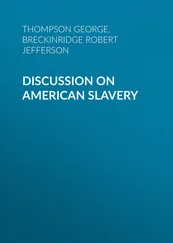Theodore Dwight Weld - American Slavery as It is - Testimonies
Здесь есть возможность читать онлайн «Theodore Dwight Weld - American Slavery as It is - Testimonies» — ознакомительный отрывок электронной книги совершенно бесплатно, а после прочтения отрывка купить полную версию. В некоторых случаях можно слушать аудио, скачать через торрент в формате fb2 и присутствует краткое содержание. Жанр: unrecognised, на английском языке. Описание произведения, (предисловие) а так же отзывы посетителей доступны на портале библиотеки ЛибКат.
- Название:American Slavery as It is: Testimonies
- Автор:
- Жанр:
- Год:неизвестен
- ISBN:нет данных
- Рейтинг книги:4 / 5. Голосов: 1
-
Избранное:Добавить в избранное
- Отзывы:
-
Ваша оценка:
- 80
- 1
- 2
- 3
- 4
- 5
American Slavery as It is: Testimonies: краткое содержание, описание и аннотация
Предлагаем к чтению аннотацию, описание, краткое содержание или предисловие (зависит от того, что написал сам автор книги «American Slavery as It is: Testimonies»). Если вы не нашли необходимую информацию о книге — напишите в комментариях, мы постараемся отыскать её.
"American Slavery As It Is" is a book composed of first-hand accounts of slavery and its horrors. The work focuses on the afflictions that slaves faced, covering their diet, clothing, housing, and working conditions. Harriet Beecher Stowe used «American Slavery As It Is» as the direct inspiration for her novel, Uncle Tom's Cabin.
American Slavery as It is: Testimonies — читать онлайн ознакомительный отрывок
Ниже представлен текст книги, разбитый по страницам. Система сохранения места последней прочитанной страницы, позволяет с удобством читать онлайн бесплатно книгу «American Slavery as It is: Testimonies», без необходимости каждый раз заново искать на чём Вы остановились. Поставьте закладку, и сможете в любой момент перейти на страницу, на которой закончили чтение.
Интервал:
Закладка:
In a letter dated St. Helena Island, S. C., Dec. 3, 1832. Mr. G. writes, "If a slave here complains to his master, that his task is too great, his master at once calls him a scoundrel and tells him it is only because he has not enough to do, and orders the driver to increase his task, however unable he may be for the performance of it. I saw TWENTY-SEVEN whipped at one time just because they did not do more, when the poor creatures were so tired that they could scarcely drag one foot after the other."
Testimony of William Poe
Table of Contents
Mr. Poe is a native of Richmond, Virginia, and was formerly a slaveholder. He was for several years a merchant in Richmond, and subsequently in Lynchburg, Virginia. A few years since, he emancipated his slaves, and removed to Hamilton County, Ohio, near Cincinnati; where he is a highly respected ruling elder in the Presbyterian church. He says,--
"I am pained exceedingly, and nothing but my duty to God, to the oppressors, and to the poor down-trodden slaves, who go mourning all their days, could move me to say a word. I will state to you a few cases of the abuse of the slaves, but time would fail, if I had language to tell how many and great are the inflictions of slavery. even in its mildest form.
Benjamin James Harris, a wealthy tobacconist of Richmond, Virginia, whipped a slave girl fifteen years old to death. While he was whipping her, his wife heated a smoothing iron, put it on her body in various places, and burned her severely. The verdict of the coroner's inquest was, "Died of excessive whipping." He was tried in Richmond, and acquitted. I attended the trial. Some years after, this same Harris whipped another slave to death. The man had not done so much work as was required of him. After a number of protracted and violent scourgings, with short intervals between, the slave died under the lash. Harris was tried, and again acquitted, because none but blacks saw it done. The same man afterwards whipped another slave severely, for not doing work to please him. After repeated and severe floggings in quick succession, for the same cause, the slave, in despair of pleasing him, cut off his own hand. Harris soon after became a bankrupt, went to New Orleans to recruit his finances, failed, removed to Kentucky, became a maniac, and died.
A captain in the United States' Navy, who married a daughter of the collector of the port of Richmond, and resided there, became offended with his negro boy, took him into the meat house, put him upon a stool, crossed his hands before him, tied a rope to them, threw it over a joist in the building, drew the boy up so that he could just stand on the stool with his toes, and kept him in that position, flogging him severely at intervals, until the boy became so exhausted that he reeled off the stool, and swung by his hands until he died. The master was tried and acquitted.
In Goochland County, Virginia, an overseer tied a slave to a tree, flogged him again and again with great severity, then piled brush around him, set it on fire, and burned him to death. The overseer was tried and imprisoned. The whole transaction may be found on the records of the court.
In traveling, one day, from Petersburg to Richmond, Virginia, I heard cries of distress at a distance, on the road. I rode up, and found two white men, beating a slave. One of them had hold of a rope, which was passed under the bottom of a fence; the other end was fastened around the neck of the slave, who was thrown flat on the ground, on his face, with his back bared. The other was beating him furiously with a large hickory.
A slaveholder in Henrico County, Virginia, had a slave who used frequently to work for my father. One morning he came into the field with his back completely cut up, and mangled from his head to his heels. The man was so stiff and sore he could scarcely walk. This same person got offended with another of his slaves, knocked him down, and struck out one of his eyes with a maul. The eyes of several of his slaves were injured by similar violence.
In Richmond, Virginia, a company occupied as a dwelling a large warehouse. They got angry with a negro lad, one of their slaves, took him into the cellar, tied his hands with a rope, bored a hole through the floor, and passed the rope up through it. Some of the family drew up the boy, while others whipped. This they continued until the boy died. The warehouse was owned by a Mr. Whitlock, on the scite of one formerly owned by a Mr. Philpot.
Joseph Chilton, a resident of Campbell County, Virginia, purchased a quart of tanners' oil, for the purpose, as he said, of putting it on one of his negro's heads, that he had sometime previous pitched or tarred over, for running away.
In the town of Lynchburg, Virginia, there was a negro man put in prison, charged with having pillaged some packages of goods, which he, as head man of a boat, received at Richmond, to be delivered at Lynchburg. The goods belonged to A. B. Nichols, of Liberty, Bedford County, Virginia. He came to Lynchburg, and desired the jailor to permit him to whip the negro, to make him confess, as there was no proof against him. Mr. Williams, (I think that is his name,) a pious Methodist man, a great stickler for law and good order, professedly a great friend to the black man, delivered the negro into the hands of Nichols. Nichols told me that he took the slave, tied his wrists together, then drew his arms down so far below his knees as to permit a staff to pass above the arms under the knees, thereby placing the slave in a situation that he could not move hand or foot. He then commenced his bloody work, and continued, at intervals, until 500 blows were inflicted. I received this statement from Nichols himself, who was, by the way, a son of the land of "steady habits," where there are many like him, if we may judge from their writings, sayings, and doings."
PRIVATIONS OF THE SLAVES
Table of Contents
I. Food
Table of Contents
We begin with the food of the slaves, because if they are ill treated in this respect we may be sure that they will be ill treated in other respects, and generally in a greater degree. For a man habitually to stint his dependents in their food, is the extreme of meanness and cruelty, and the greatest evidence he can give of utter indifference to their comfort. The father who stints his children or domestics, or the master his apprentices, or the employer his laborers, or the officer his soldiers, or the captain his crew, when able to furnish them with sufficient food, is every where looked upon as unfeeling and cruel. All mankind agree to call such a character inhuman. If any thing can move a hard heart, it is the appeal of hunger. The Arab robber whose whole life is a prowl for plunder, will freely divide his camel's milk with the hungry stranger who halts at his tent door, though he may have just waylaid him and stripped him of his money. Even savages take pity on hunger. Who ever went famishing from an Indian's wigwam? As much as hunger craves, is the Indian's free gift even to an enemy. The necessity for food is such a universal want, so constant, manifest and imperative, that the heart is more touched with pity by the plea of hunger, and more ready to supply that want than any other. He who can habitually inflict on others the pain of hunger by giving them insufficient food, can habitually inflict on them any other pain. He can kick and cuff and flog and brand them, put them in irons or the stocks, can overwork them, deprive them of sleep, lacerate their backs, make them work without clothing, and sleep without covering.
Other cruelties may be perpetrated in hot blood and the acts regretted as soon as done--the feeling that prompts them is not a permanent state of mind, but a violent impulse stung up by sudden provocation. But he who habitually withholds from his dependents sufficient sustenance, can plead no such palliation. The fact itself shows, that his permanent state of mind toward them is a brutal indifference to their wants and sufferings--A state of mind which will naturally, necessarily, show itself in innumerable privations and inflictions upon them, when it can be done with impunity.
Читать дальшеИнтервал:
Закладка:
Похожие книги на «American Slavery as It is: Testimonies»
Представляем Вашему вниманию похожие книги на «American Slavery as It is: Testimonies» списком для выбора. Мы отобрали схожую по названию и смыслу литературу в надежде предоставить читателям больше вариантов отыскать новые, интересные, ещё непрочитанные произведения.
Обсуждение, отзывы о книге «American Slavery as It is: Testimonies» и просто собственные мнения читателей. Оставьте ваши комментарии, напишите, что Вы думаете о произведении, его смысле или главных героях. Укажите что конкретно понравилось, а что нет, и почему Вы так считаете.

